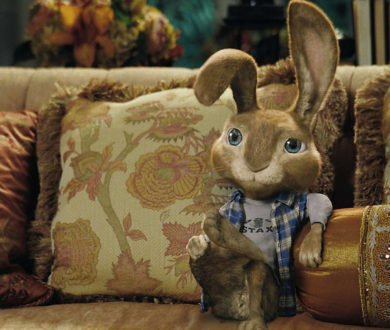Nostalgia is hard to describe definitively, but when it does occur, you can’t miss it. For some, catching a saccharine whiff of Impulse Body Spray from a passer-by can instantly transport them back to being a young girl prepping for the school disco. For others, an unexpected Facebook memory of a photo taken while travelling can ignite an oxymoronic state of sorrow and content, a simple reminder of wonderful people and places that they’re unlikely to ever encounter again. For many, it’s a feeling that arises when taking a bite from one of their mother’s home-cooked meals. She’s no Gordon Ramsay, but the warm childhood memories it elicits is enough to make the meal a wondrous one.
To sum it up in one word would be to call it bittersweet. For the most part, it feels warm and comforting, but it often comes with a tinge of sadness. It’s a natural human reaction we all experience, and a common one at that: most people wax nostalgic around once a week, with some even experiencing it around three to four times a week. But exactly why we experience it remains arguable, considering that science, despite psychologists analysing the phenomena for the past few decades, is still yet to land on a categorical conclusion.
Once, nostalgia was actually considered a form of mental sickness, derived from the Greek terms ‘nóstos’ and ‘álgos’, which mean ‘return’ and ‘pain’ respectively, it suggested internal suffering due to a sense of homesickness, and was deemed such a bleak affair, that some declared it the cause of crippling mood disorders like depression and anxiety.
Understanding has evolved since those times though, and now various psychologists believe that, instead of igniting the depression flame, nostalgia can actually work as the extinguisher. An applauded 2012 study by Routledge, of the University of Southampton, concluded that nostalgic reflection increases self-esteem, strengthens social connectedness, improves mood and imbues life with meaning. It runs on the thesis that those who are already suffering from feelings of discontentment or low self-worth are able to reach into their personal reservoir of nostalgic memories and find some comfort in them.
With this in mind, nostalgia is now regarded as a sort of in-built, psychological medicine, that people can take a dose of in order to conjure up the material they need. Most often, nostalgia materialises memories of close relationships, or beloved places, making the person feel as though they are supported and strengthened by those dear to them. Reflecting on past events can also aid mental states by serving as a reminder of the times difficult challenges or failures were overcome — the mind is simply serving a pep talk that states, if you did it then, then you can do it now.
If these theories are to be believed, then nostalgia could be a valuable tool, but that’s not a suggestion to start living in the past. We don’t recommend you procure your childhood toys from the basement and parade them around at all times, simply to bring about the soft memories of sleeping with them as a child, or keeping two-sizes-two-small denim shorts so that you can reminisce on the summer days when you looked good wearing them. Do not try and acquire a teaching position at your junior school so that you can relive your adolescent carefree spirit and definitely do not waste all your time watching reruns of Friends — it’s funny, but at some point, we must all move on.
For fear of missing the present, by no means should you spend all your valuable time searching for nostalgia, but if you do randomly find yourself recalling a memory that ignites a warm feeling inside, and you’re wishing that you could relive that particular moment, then give in — your mental state might just thank you for it.







